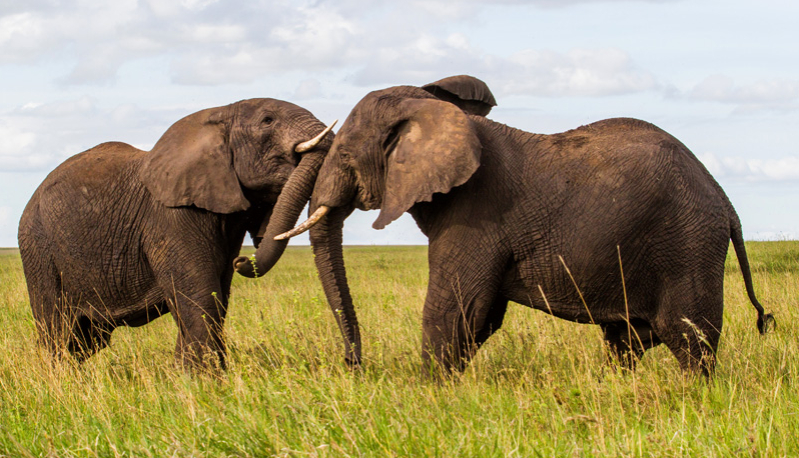
A good friend recently drew my attention to a fascinating Swahili proverb, best translated “When the elephants fight, the grass suffers.” We had been talking about the rise in global unrest, and who the victims are. When the big players fight (or when the elephants fight), it is a host of innocent bystanders (the grass) who suffer the most.
True, sometimes elephants fight to the death, especially during the “musth” period when testosterone-filled bulls can become very aggressive, but most often they simply walk away, while the grass below takes a lot longer to recover.
Jesus insisted that those who wanted to be first needed to be willing to be last, the servant of all.
I do not generally write political commentary—and far prefer to find things that unite us than things that tear us apart—but I am always concerned when unnecessary suffering is inflicted, or when leaders forget that leadership is supposed to be on behalf of those impacted by their leadership. It’s why Jesus insisted that those who wanted to be first needed to be willing to be last, the servant of all.
In the Bible true leaders (in the sense of leaders worth following) are those whose ambition is for the greater good, not their personal agenda or private concerns. Of course, there are many examples in the Bible of leaders who didn’t meet this requirement, and they are invariably held up as a cautionary tale of the damage caused when leaders go wrong. The Bible is very aware that when the elephants fight, the grass suffers.
(People) want security, and peace, and good will, and hope.
As multiple aid agencies around the world are having to shut up shop with their financial aid halted in a heart beat; as global conflict escalates and reaches new levels of uncertainty and insecurity; as pensioners worry as they see share markets wildly duck and dive, putting their paltry savings in serious and unnecessary jeopardy; as long standing national friends turn their backs on each other; as truth is blatantly twisted and distorted, and heroes are insulted and corruption is praised, it is the grass that suffers—ordinary people wanting to live peaceable lives. They don’t want artificial conflicts imposed upon them. They want security, and peace, and good will, and hope.
I’m no elephant, and I imagine you aren’t either. What can we do as the elephants fight?
We can reach out in kindness.
We can look out for each other.
In an environment that escalates differences, we can spot what we hold in common. We can reach out in kindness and be a little bolder in including those who are not usually part of our circle. We can be people of hope, even as our fears are played upon.
We can pray.
We shouldn't pray as a weak last resort but from the conviction that prayer changes the world. God is the owner of this world—always has been, always will be. We can remember that we answer to God for the way we treat and take care of the amazing planet entrusted to us.
We can be truthful.
Hold to the truth even when a lie is more convenient.
Hold to the truth even when a lie is more convenient. We can try and see things from the perspective of others—even when our own seems far more attractive. We can be curious, even when we think we already know.
We should call evil, evil.
And we should call out evil in the light of what the Bible so clearly teaches. That God the creator of all, cares for all, while having a special concern for those on the fringes—those the Bible so often calls the widows, the orphans, and the strangers in the land.
We can be the change we hope to see in the world. And as we are able, we can move the elephants along, that the grass might grow, that ordinary people can flourish.
Originally published on Brian Harris' Blog. Republished with permission.
Dr Brian Harris, is based in Perth Australia. After decades of church pastoring and 17 years leading a theological college, he now directs the Avenir Leadership Institute, a future-focused consultancy which helps to shape the kinds of leaders the world needs. Brian is the author of seven books, the latest of which are: Why Christianity is Probably True (Paternoster, 2020) and Stirrers and Saints: Forming Spiritual Leaders of Skill, Depth and Character (Paternoster, 2024).





